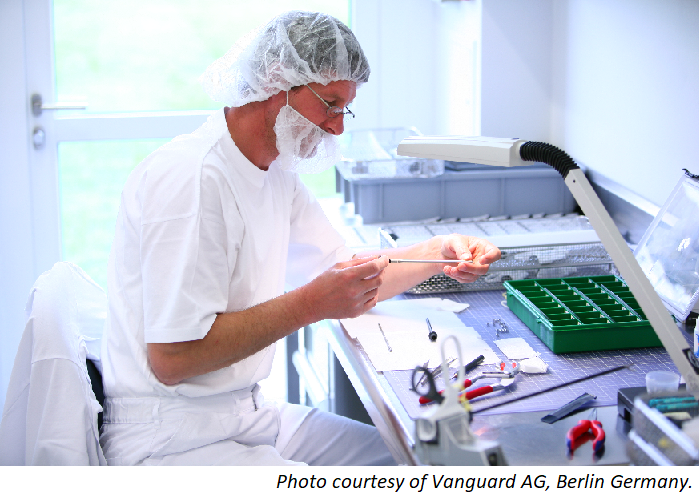 On Tuesday, 20 August 2019 the European Commission closed its feedback period on safety and performance requirements for single-use device reprocessing. As the 26 May 2020 deadline for compliance with the new European Medical Device Regulation looms, we have arrived at a critical moment as European Member States now have sufficient information to safely reduce costs and “red bag” waste by adopting standards that will expedite single use device remanufacturing.
On Tuesday, 20 August 2019 the European Commission closed its feedback period on safety and performance requirements for single-use device reprocessing. As the 26 May 2020 deadline for compliance with the new European Medical Device Regulation looms, we have arrived at a critical moment as European Member States now have sufficient information to safely reduce costs and “red bag” waste by adopting standards that will expedite single use device remanufacturing.
Hospitals worldwide have safely used millions of regulated, remanufactured, single use devices (SUDs) to drive down costs and waste. With the passage of the European Union (EU) Medical Device Regulation (MDR) in 2017 and the publishing of the European Commission’s long awaiting Implementing Act laying down the rules, or Common Specifications, for single-use devices that are reprocessed and used within a health institution, European hospitals now have a path to access to safe, regulated, remanufactured SUDs.
Healthcare providers looking to have access to environmentally preferable and lower-cost medical device options must now urge their Ministries of Health to act. Strict EU requirements for SUD reuse require that Member States elect to allow regulated SUD remanufacturing (CE marked), meaning the remanufactured SUDs meet all the same requirements as any new medical device (as outlined in 17.2 of the MDR), OR, as is outlined in the Common Specifications (pursuant to 17.3 of the MDR), decide “not to apply all of the rules relating to manufacturer’s obligations laid down in that Regulation,” in and instead elect to allow hospitals to reprocess in-house pursuant to the Common Specifications. Member States are required to inform the European Commission which path they have taken.
The Association of Medical Device Reprocessors (AMDR), enthusiastically supports full manufacturer treatment for SUD reprocessors (or, remanufacturers) as regulation and oversight gives confidence to hospitals and healthcare providers that remanufactured SUDs are safe, effective, and benefit patients, hospitals and health systems by significantly reducing medical device costs and medical waste.
The Regulation creates a more simplified, consistent and EU-focused legal and regulatory path for hospitals that wish to reprocess. The Regulation also prohibits unregulated reuse of SUDs, giving Ministries of Health a tool to stop in appropriate and unsafe reuse of SUDs. But most Ministries have so far failed to act, and the Regulation requires that Member States “opt in,” or take affirmative legislative or regulatory action to allow CE marked remanufactured SUDs (pursuant to 17.2), or to elect to allow hospitals to reprocess according to the Common Specifications (pursuant to 17.3), or do nothing. Failure to act, however, is an effective ban on all reprocessing or remanufacturing.
Given a thorough review, any Member State seriously contemplating allowing hospitals to reprocess SUDs in house will quickly realize (as some have said in comments to the Commission) that the only proper way to reprocess is to do so with regulated remanufacturers. As is detailed in the Common Specifications, reprocessing of SUDs requires a considerable effort in addition to Notified Body oversight, and many of the requirements are simply outside the scope of what hospitals can reasonably meet.
In AMDR’s view, the new requirements for SUD reuse will have similar impact to what occurred in the USA and Germany after FDA and the Federal Ministry adopted strict regulatory controls in 2000 and 2002, respectively. There, professional, commercial remanufacturers helped hospitals save over $471 million in 2018, with no increased risk to patient safety. In-house reprocessing of SUDs virtually stopped. In addition, remanufacturers kept over 15 million pounds of medical waste from going to landfills and incinerators. Hospitals save further by reducing expensive medical waste because many medical devices can be remanufactured multiple times. Finally, as with the competition injected into the drug market by generics, the availability of professionally remanufactured SUDs has been shown to  drive down prices for new devices.
drive down prices for new devices.
In AMDR’s view, the new EU MDR will lead to similar cost savings and environmental benefits throughout the EU – but only if Member States opt in to allowing it. AMDR urges all healthcare professionals to urge their Ministries to act quickly to “opt in” to allowing CE marked, remanufactured SUDs.






